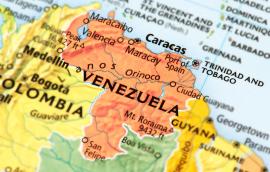Latin America Initiative | Commentary
Stabilizing Maduro In contrast to the generally accepted view of U.S. policy toward hostile regimes, especially in the Caribbean basin, Washington is not trying to destabilize the government of Venezuela. In fact, it is making efforts to keep Nicolás Maduro in office. With U.S. foreign policy in a precarious position — facing challenges from ISIS, Russia and China — stabilizing the Maduro government looks like the most rational option to support the White House’s current interests in the Western Hemisphere.
March 10, 2015







